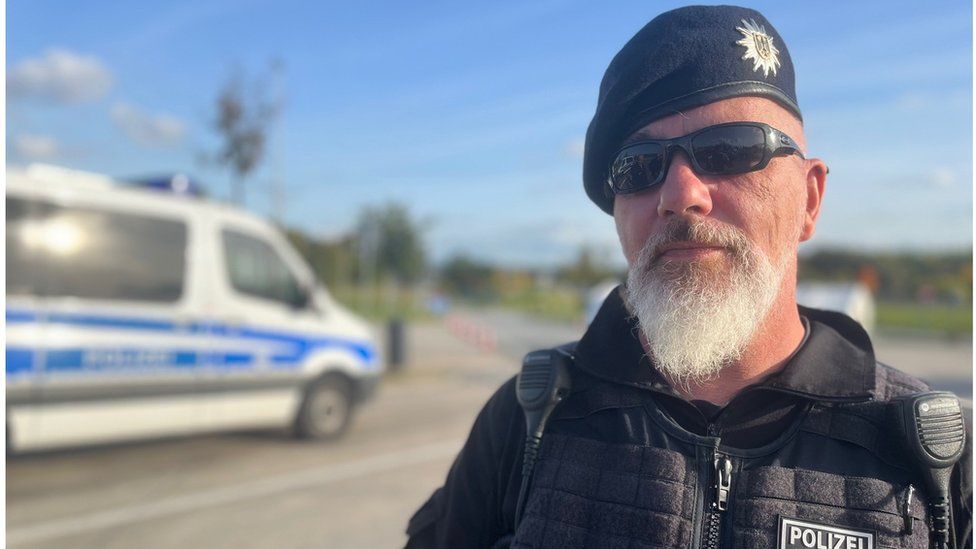-

-
-
Loading

Loading

German armed police officers are conducting searches for people-smugglers and immigrants on the motorway connecting Poland to Germany. This action is part of the German government's efforts to demonstrate control over the increasing levels of illegal migration. However, in a rural border district called Altenberg, little control is apparent. Altenberg is a small town in Saxony near the Czech Republic, where smugglers frequently drop off people seeking illegal entry into Germany. The local mayor, Markus Wiesenberg, highlights the strain placed on local services and the concerns of residents due to the influx of migrants. The issue of migration has become prominent in national discussions, with far-right groups capitalizing on the matter and making gains in regional elections. In response, the German government implemented temporary checks on land borders with Poland, the Czech Republic, and Switzerland. The number of illegal entries into Germany in September reached 21,366, the highest monthly figure since early 2016. Despite this, Germany remains a top destination for asylum seekers. In a rural youth hostel in Saxony, over 50 men are waiting for their future to begin. One asylum seeker, Muhammad Abdoum from Syria, shares his journey and hopes for a new life in Germany. Opposition towards accommodating migrants is visible in the nearby village of Hermsdorf, as residents protest the potential use of nearby apartments for migrant housing. This sentiment reflects the fears and safety concerns of the locals. Following the success of the far-right Alternative für Deutschland (AfD) party in state elections, the German government is stepping up deportation efforts for failed asylum seekers. Chancellor Olaf Scholz's recent visit to Nigeria aimed to increase the number of returns. While the chancellor denies that the AfD's success influenced these actions, there is a sense of fear in the government leading to serious discussions. Gerald Knaus, chair of the European Stability Initiative think tank, criticizes border checks and fast-tracked asylum applications as ineffective solutions. He suggests reviving and expanding agreements similar to the 2016 deal with Turkey to countries such as Senegal, Morocco, and Rwanda. There is growing support, including within the governing coalition, for processing asylum claims in countries migrants pass through before reaching the EU. On Monday, Chancellor Scholz will address migration as a top agenda item during a meeting with Germany's regional leaders. The current migration debate in Germany involves attempts to combat irregular migration alongside efforts to fill labor shortages by attracting skilled foreign workers. Germany has also welcomed over a million people from Ukraine, primarily women and children, following Russia's invasion. The rise in irregular migration has bolstered far-right groups, further intensifying the political climate. Mayor Wiesenberg asserts that the federal government is perceived as failing and that lessons from the 2015 migration crisis were not learned.